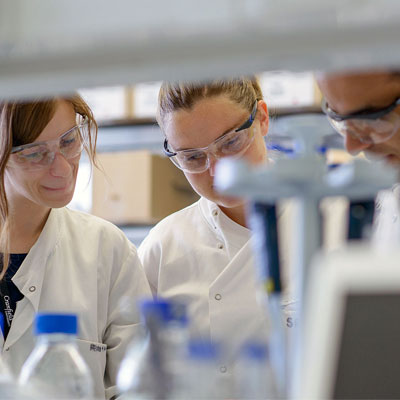Understanding the mechanisms by which hazardous substances can cause harm to human health is a key aspect of our environmental and health research. Two key complementary areas of study are toxicology and epidemiology.
In vitro studies of nanoparticles, fibres and chemicals are examples of our experimental capability to improve our understanding of the impact of hazardous substances on human health.
Epidemiological studies of the association between types of occupation and the incidence of diseases such as cancer identify scenarios where exposure to hazardous substances may be a cause of adverse health.
The assessment of evidence about the health risk of a particular hazardous substance involves critical literature reviews of all published work and this process is supported by our extensive information science skills.
About our research
We undertake experimental and desk-based studies to understand the mechanisms of toxicology in the human body and their links to the route of exposure. Our experimental work is focused on in vitro toxicology whereby human cells are exposed to potentially hazardous substances such as nanoparticles, fibres and chemicals, and the reaction of the cells is examined to predict likely effects in the human body.
We also undertake desk-based evaluation of published toxicological literature. This work is complemented by the assessment of extensive epidemiological data sets on the incidence of disease to identify links between exposures to hazardous substances and higher disease occurrence in particular population groups.
Clients include:
• Central government eg. Defra, DH, DfT, HSE
• Industrial associations such as CEFIC, ECFIA
• European government (EU framework research projects), EFSA
• UK research bodies.
Our impact
Much of our research directly informs regulators and thereby the development and implementation of measures to control the release of hazardous substances in the environment that are a risk to human health.
We develop improved methods of assessing risks through a better understanding of the behaviour of contaminants in the environment and the importance of pathways of human exposure. This knowledge is combined with the theoretical and experimental (in vitro) assessment of the toxicology of chemicals and particles.
Our work is published widely in peer reviewed journals and conferences and our senior staff serve on a number of European and national expert groups that advise on new standards and regulations as well as identify priorities for further research.
Working with us
There are a variety of ways to work with us ranging from use of postgraduate students to conduct blue sky or applied research to well defined consultancy projects that take advantage of our specialist scientists to conduct clearly defined investigations.
We undertake projects for individual businesses and also research associations. The work can be focused on open publication outputs or provision of data within standard non-disclosure agreements
